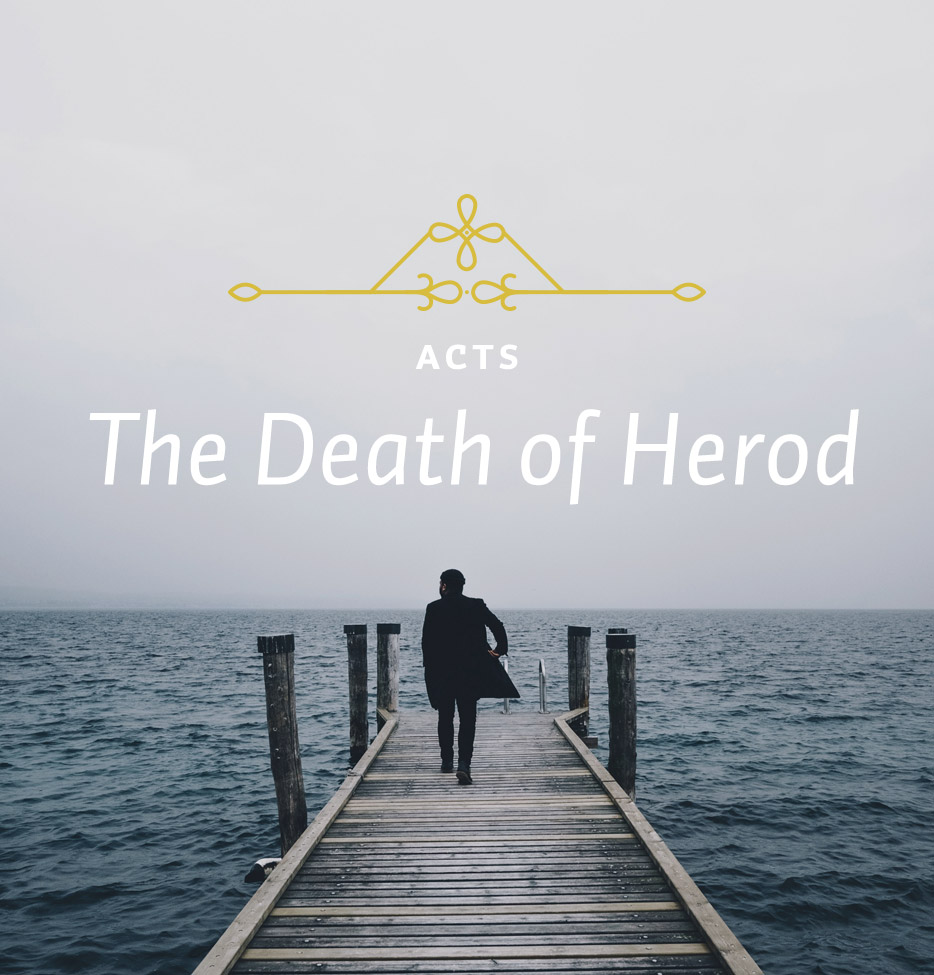I think of those who have tried to oppose the Gospel over the centuries. There were times when Christ’s enemies tried to oppose the expansion of the Word of God by the sword, just as Herod did when he executed James. The powerful said, “If you continue to preach this Gospel, we will take away your lives.” And they did. There have been countless martyrs in the history of the Church. Yet the Word of God has not been bound. The more the enemies of Christ have killed His followers, the more the Gospel has spread outward like ripples on a pond.
Others have tried to suppress the Word of God by ridicule. They have concluded that physical persecution does not work. Killing people does indeed often turn them into martyrs. They do not want to give the Church heroes. So they have ridiculed Christianity and attempted to tear the heroes down. They laugh at us, saying, “Who in his right mind would ever believe a foolish thing like that? No enlightened, no modern person can believe such foolishness.” The French agnostic philosopher Voltaire tried to destroy the church by ridicule, predicting that within fifty years people would have forgotten even who Jesus Christ was. But the very year he said that the British Museum purchased a Bible manuscript from Russia for $500,000 while a copy of one of Voltaire’s books sold for eight cents in the bookstalls in Paris. Fifty years later, in the very year of his ignorant prediction, the Geneva Bible society was running off thousands of Bibles on presses which had been set up in Voltaire’s former home in Geneva.
Others have tried to bind the Word of God by neglect by pretending it no longer matters, just getting on with their utterly secular lives. “What is Christianity?” they ask. Yet the Gospel spreads.
People have tried to bind the Gospel by creating substitutes for it, counterfeits. They say, “Well, all right, we’ll have religion, but we’ll have it without Christ. We don’t need this business of the cross and an atonement. We’ll just take the beautiful things like Jesus’ ethics.” That kind of religion, a Christ without the cross, has no power and appeals to no one except those seeking a substitute for the true thing. Thus do people fight, oppose, and ridicule the Gospel we hold dear. Yet that true Gospel of God goes on from strength to strength while the other secular gospels and their advocates fade along the way.
Yet although the Word of God is always advancing, as the text says, it does not do so without human channels, which is why I think Luke closes this section by a reference to Barnabas, Saul and John Mark. The Gospel is going to expand. God has decreed that it will. But he has also decreed that it is to advance by human messengers, like Barnabas, Saul, and the others. It spreads by all those whom Jesus in Acts 1:8 has appointed “witnesses” (all Christians).
I am glad Luke mentioned John Mark. If he had only mentioned Barnabas and Saul, we might have said to ourselves, “Well, naturally. Paul and Barnabas were apostles. They were the ones to carry out Christ’s mission. There are people like them today—great leaders, evangelists. The task is for people like that, not for me.” But Luke mentions Mark.
John Mark was the author of the Gospel of Mark. He was a friend of Peter and Barnabas and a cousin to Barnabas, who traveled with him much of the time. At the beginning of the Christian mission Mark was young. Later there was a period when he seems to have abandoned the missionary call—at least in Paul’s judgment—though Paul later judged him to be useful again. He was an ordinary person. I suppose he was typical of the next generation of Christian missionaries after the apostles, and is mentioned here for that reason. Do you look to others who have been in the faith a long time and think, “They are the ones to carry the Gospel on”? They are, of course. They are doing it to the best of their ability. But you, like Mark, are also called by Jesus to the same assignment. Will you do it? You must, because God has determined that the Word of God shall “increase and spread” through you, as it has through other normal people in earlier generations of the Christian church.






